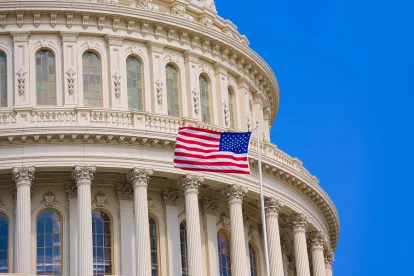In late October, the House of Representatives quietly approved a bill that would dramatically strengthen Congress’s procedures for enforcing congressional subpoenas. In adopting the bill, the bipartisan leadership of the House Judiciary Committee highlighted the challenges that Congress faces in obtaining materials from executive branch agencies. Significant portions of the bill, however, apply to all congressional subpoenas, including subpoenas issued to private sector individuals and entities.
After passing the House, the legislation is currently pending in the Senate Judiciary Committee. The staff of the Senate Judiciary has indicated an interest in enhancing Congress’s subpoena enforcement procedures. In 2015 and 2016, the Senate engaged in a lengthy legal battle to enforce a subpoena against Backpage, an online forum accused of contributing to sex trafficking, and its CEO Carl Ferrer. We therefore believe that legislation to strengthen congressional subpoena enforcement is likely, but it is not yet clear whether the Senate will support the House bill or propose its own alternative.
The key provisions of the bill, H.R. 4010, the Congressional Subpoena Compliance and Enforcement Act, include the following:
-
The bill would establish special rules applicable only to civil litigation brought by Congress to enforce a subpoena. Courts would be required to “expedite to the greatest possible extent” the resolution of such cases. Congress would be permitted to request a hearing before a three-judge panel of the district court, rather than proceeding through the usual district court process. In such instances, the legislation would eliminate intermediate appeals – any appeal would go directly to the Supreme Court.
-
The legislation would authorize “monetary penalties” against the head of a government agency found by a court to have willfully failed to comply with any part of a congressional subpoena. Importantly, the legislation would prohibit the use of any government funds to pay the penalty, presumably leaving the government official personally on the hook.
-
In a change that has significant implications for companies and individuals that receive congressional subpoenas, the legislation would provide that privileges against responding to a subpoena may be waived if a recipient does not specifically assert the privilege in a detailed privilege log provided to Congress.
-
The legislation also prescribes – with extreme precision – the information that a subpoena recipient must include in a privilege log. The bill would require, for each record withheld, the following:
-
“An express assertion and description of the legal basis asserted for withholding the record.”
-
The type and general subject matter of the record, and the date, author, addressee, and custodian of the record.
-
“The relationship of the author and addressee to each other.”
-
“Any other descriptive information that may be produced or disclosed regarding the record that will enable the congressional committee or subcommittee issuing the subpoena to assess the legal basis asserted for withholding the record.”
-
-
The legislation would require that subpoena respondents submit electronic information to Congress in the native electronic format.
-
Finally, the legislation reiterates Congress’s longstanding position that it is not bound by common law privileges, including the attorney-client privilege. The bill states that the legislation may not be interpreted “to establish Congress’ acceptance of any asserted privilege or other legal basis for noncompliance with a congressional subpoena.”
Recent disputes between Congress and subpoena recipients – including the Fast and Furious investigation in the Obama Administration and the Senate’s investigation of Backpage – would likely have evolved very differently under the procedures proposed in this legislation. Indeed, the privilege log requirement may be a direct reaction to issues Congress confronted with Backpage.
Although the legislation was sponsored entirely by Republican Members of Congress, it passed the Judiciary Committee unanimously, and it passed the House under suspension of the rules, which requires a two-thirds supermajority. Although congressional subpoenas are often the subject of partisan conflict, the wide support for this legislation likely reflects the parties’ shared institutional interests in seeing subpoenas enforced.







 />i
/>i

